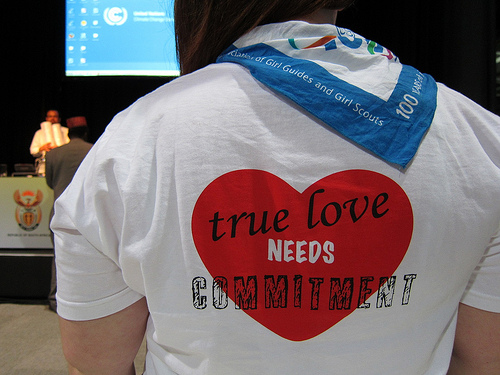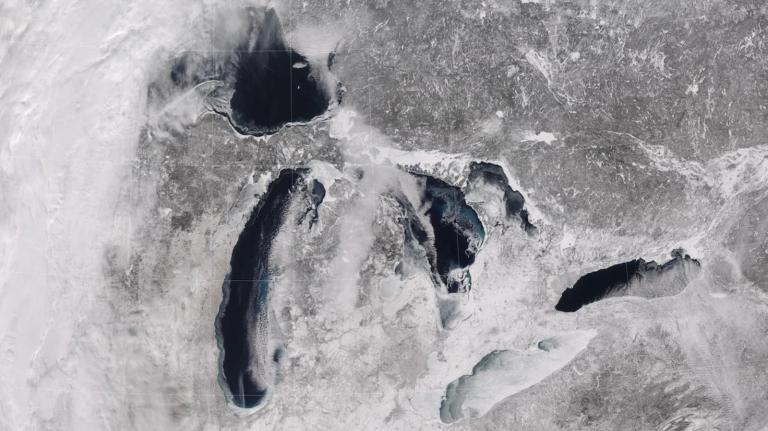 An activist shows support for the Kyoto Protocol in Durban.Photo: Hollywood NorthCross-posted from ThinkProgress Green.
An activist shows support for the Kyoto Protocol in Durban.Photo: Hollywood NorthCross-posted from ThinkProgress Green.
“Even if others are not, we are ready to take a second commitment period of the Kyoto Protocol,” said European commissioner for climate action Connie Hedegaard.
Australia and New Zealand, which sponsor the most developed carbon markets outside Europe, say they won’t agree to remain part of the Kyoto treaty unless other countries bolster efforts to curb emissions.
Brazil, South Africa, India, and China, known as “BASIC countries,” remained united over major issues in relation to climate change, a senior Chinese official on climate change said here on Tuesday.
China, the United States, and India together make up nearly half of the world’s CO2 emissions, and they all have reasons for not wanting to be part of a new global deal.
On Monday, the World Bank, along with four other international development banks, announced a climate change partnership in which they would develop a common approach to assessing the climate risk of cities, greenhouse-gas emissions, and appropriate measures for mitigation, in the process of international development.
Deforestation in Brazil’s Amazon region fell to its lowest in 23 years in the year through July, the government said Monday, attributing the drop to its tougher stance against illegal logging.
A group of youth and indigenous activists from Canada gave delegates to the conference mock gift bags containing samples of fake tar sands, along with tourism brochures for Canada and Canadian flags:
Wetlands — critical for the health of South Africa’s coasts and river systems — already have been degraded or seriously altered by human activity, and experts fear global warming threatens them further.
Meet Kumi Naidoo, the dynamic, Durban-born leader of Greenpeace International.
Women, particularly those living in mountain regions in developing countries, are facing disproportionately high risks to their livelihoods and health from climate change, as well as associated risks such as human trafficking, according to a new report from the United Nations Environment Program.
Rich nations of the Organization for Economic Cooperation and Development have committed $22.9 billion to help poor countries fight climate change with the Green Climate Fund, the Paris-based body said on Tuesday.




